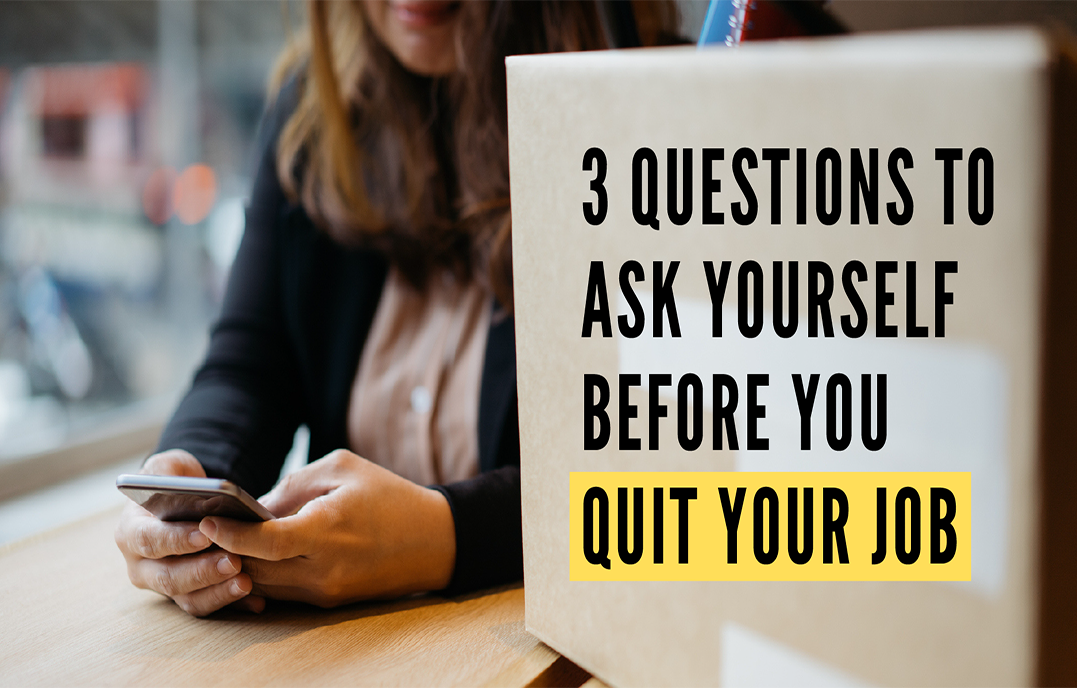Author: Sheri Nasim, President & CEO
Since publishing Work On Purpose: How to Connect Who You Are With What You Do in 2014, I have had many opportunities to speak about its principles. The book opens with a story about how something I heard on the radio one morning became a career-changing wake up call. It led me on a journey to connect with my purpose, and find work that truly makes a positive impact in the world. In closing, I challenge others to connect who they are with what they do for a living. Then I take questions. Without fail, this question is always in the top three:
You left your job in order to find work with purpose. Do you think all people who are unhappy in their jobs should look for work with a purpose like you did?
“Should I quit my job?” continues to be a burning question on the minds of many of today’s workers, especially for post-pandemic Americans. My answer? “Yes, and no.” Yes. You want want to be more than a coin-operated employee. But, if you don’t take stock of the kind of co-worker you are now and get clear about where you want to go, you could easily find yourself facing the same workday woes at your next gig that you’re facing now.
According to research from the Bureau of Labor Statistics, about 4 million people quit their jobs in April 2021 alone, the highest quit level since the agency began publishing these rates in December 2000. There’s no single reason for this massive shift. Millions lost their jobs due to the pandemic, many switched careers, started their own companies, or dropped out of the workforce altogether.
If you are among those considering a move, take time to reflect before you refresh your resume. To the extent that you have the locus of control, it’s your job to take ownership of who you are and what you want. Here are 3 questions you should ask yourself before you quit your job:
1. Am I Adding or Subtracting? The late motivational speaker Zig Ziglar said, “You can have everything in life you want, if you will just help enough other people get what they want.” If you’re waiting for others to solve your engagement issue, you could be waiting a really long time. Break the habit of waiting for things to change, and look for ways to add value to every interaction at work.
2. Am I Using My Skills Instead of My Strengths? Author and consultant Marcus Buckingham suggests that we have a moral duty to understand our greatest strengths because our teams should use us where we are our strongest. He notes that this is harder to do than you might think because your strengths come so easily to you that you barely recognize them. It’s entirely possible to slide into a career that matches your skillset but not your greatest strengths. Here are Buckingham’s tips to pinpoint your strengths.
3. Am I Working from a Roadmap? Many people are not. They go through their careers like passengers on a bus. Scenes fly by the windows for mile after mile. Seatmates come and go. Opportunities to get off occur at regular intervals. But the hum of the road dulls their senses, and soon they end up lost. Their personal plans and dream destinations long forgotten. Use the simple guide in Work on Purpose to create a Purpose Plan for yourself. Of course, it’s possible to find meaningful work without a Purpose Plan, just as you can get to your destination by riding a bus. But, with a plan, you are more likely to be alert and stay on your truth path.
I’m not suggesting that leaders should not take primary responsibility for creating a culture of engagement. I’m suggesting that the turbulence is likely to continue. While leaders focus on creating resilient workplaces, challenge yourself to actively look for ways to add value, know your strengths, and have a roadmap to connect who you are with what you do.
Question: What’s one thing that you can do to improve your engagement level at work?
Driven by the premise that excellence is the result of aligning people, purpose and performance, Center for Executive Excellence facilitates training in leading self, leading teams and leading organizations. To learn more, subscribe to receive CEE News!




